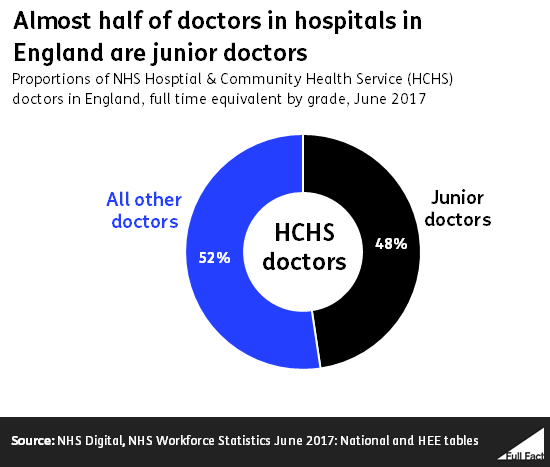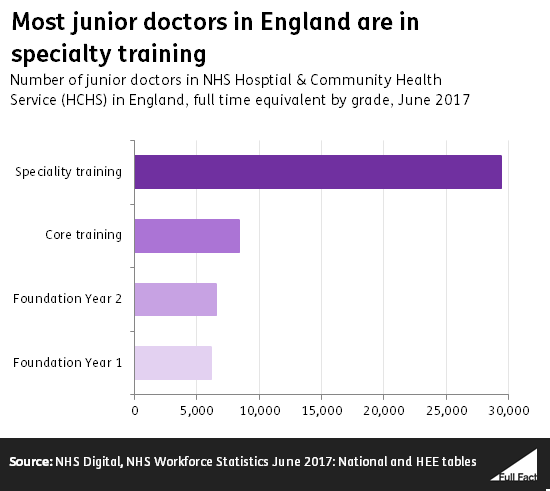What is a junior doctor?
“Ministers and NHS training chiefs are considering an end to the use of terms such as “trainee” and “junior” to describe qualified doctors who often have a decade of experience”
The Times, 10 October 2017
Junior doctors are not a small group of young trainees. They make up almost half of all doctors in hospitals in England.
Of the 106,000 doctors in NHS hospitals and community health services in England, 50,000 were junior doctors in June 2017.
All of them are qualified to practice medicine, and some have ten years of practical experience on top of this. So the title “junior doctor” often does not reflect their level of responsibility.
Join 72,547 people who trust us to check the facts
Subscribe to get weekly updates on politics, immigration, health and more.
What is a junior doctor?
A junior doctor is any medical graduate who is in further training and not yet qualified to practice independently without supervision.
You could see a “junior doctor” in A&E, have them diagnose you, or put you under anaesthetic.

These figures are all based on full time equivalent statistics, rather than headcount. If two doctors each work half a week, this counts as two people on headcount figures, but one person on full time equivalent.
Some junior doctors are just below consultants
Of the 50,000 junior doctors, 58% are in the most senior bracket: “speciality training”.
Full training takes a long time, meaning that some junior doctors have ten years of practical medical experience.
Junior doctors first complete a two-year “foundation programme” which gives them their first experience working with patients and medical staff.
After this, they complete either “speciality training” in a particular area of medicine, or “general practice training” to become a GP. This can take anywhere from 3 to 8 years.

Senior specialist trainees are just below the level of consultant.
The BMA have a timeline explaining the path of a junior doctor.
Junior doctors are responsible for many of the services provided by the NHS, so to group them under one category does not tell us about the range of skills and experience they have.